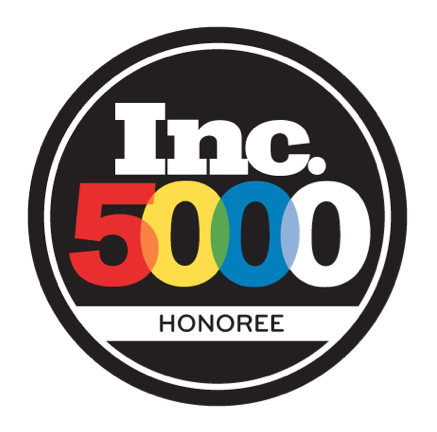So, you’ve realized all the amazing benefits of remote working—like being able to earn a living from your living room and being more focused and effective at what you do—and you’re ready to go online and get a remote job.
Or are you? Before you go after that position, you need to know how to shine when you’re looking for a remote job. Of course, all the standard job search rules apply—have an updated and proofread resume, make sure your social media is squeaky clean, and have well thought-out questions for the interview. But employers hiring remote workers are looking for a little bit more. So, make sure you show that you have these seven key skills covered if you want to land a remote job.
1. Organization
When you work remotely, your boss won’t be looking over your shoulder—or even able to stop by your cubicle—to see if you’re staying on top of your tasks. You’ve got to keep yourself on track.
To prove that you always know what needs to be done and when, emphasize in your resume, application email, and interview the jobs or projects you’ve done that have required managing many moving pieces, and talk about how you kept everything coordinated.
For example, perhaps you were responsible for both creating content for the company blog and answering customer service emails—and you balanced the priorities perfectly. Or, maybe you gathered stories from contributors, contracted with the printer, and oversaw the distribution of the newsletter each month as a volunteer at your child’s school. Give the details of how you did that, and remember to refer to the tools you use—like Trello, Asana, or Basecamp for project management or Google Drive or Dropbox for collaboration—since these are exactly the kinds of tools you’ll be using for remote working.
2. Communication
Keeping in touch when you work remotely is absolutely crucial—think email, online chat, video meetings, and maybe phone and text messages, too.
You should be familiar with the most common tools used, and, when it comes time to contact your potential employer, you should show that you’re willing and able to use them. That means offering to have an interview via Google+ Hangouts or Skype or to jump on an online chat to go through the details of your test assignment.
You also need to have top-notch communication. Be very prompt to reply to any contact from employers. Keep your messages clear, concise, and correct (in other words, read, edit, and then proofread one more time before pressing “send”). And be extra sure you have all your equipment and home office in order well before any video calls.
3. Time-Consciousness
Since you’ll probably be working in a different region than at least some, if not all, of your team, you’ll have to be extra aware of time zones. And, because remote working sometimes makes it difficult to know what your co-workers are doing at any particular moment, you also need to be sensitive about using their time.
So, make a point to include dates and time zones when you suggest or agree to meetings or deadlines with an interviewer. So, if you’re in San Francisco and the company is in New York, you can say, “I’d be happy to talk with you tomorrow, Monday March 16, at 10 AM Pacific Time (San Francisco) / 1 PM Eastern Time (NYC).”
Then, when you are talking with a prospective employer, make sure that you respect the time limits set. Or, if there weren’t any set in advance, at the beginning of the conversation, say something like, “It’s great to get to talk to you. I want to make sure we can cover everything we need to—can you let me know how much time you have now?” And then be sure to wrap up the talk before then.
4. Proactiveness
As a remote worker, you’ll naturally be working on your own much of the time and won’t have officemates to turn to for some quick help. That’s why employers are eager to hire people who are independent and self-sufficient.
Think through the things you’ve done in the past to show you’re self-reliant and a self-starter. Did you learn the ins and outs of Excel macros and pivot tables on your own for your role as a sales associate? Or have you started a local tech meetup for women because there wasn’t one in your area already?
Emphasize those initiatives when you apply for remote jobs. And also look for opportunities to show your independence during the job search process. For example, if you’re applying to be a web designer, try submitting a mock-up of a re-design of the company blog with your application. Or, if you’re looking for a role in social media, come up with a list of ideas for Facebook posts or Pinterest pins that you think the company would love.
5. Tech Savvy
Even if your job won’t specifically be a technical one, you’ll definitely need to feel comfortable with both software and hardware as a remote worker nowadays. And companies need to know that you can manage without an IT department right by your side.
Besides including your technical skills on your resume, you can also show them off throughout your job search. In your application, include a link to your online portfolio or blog to prove your prowess with WordPress or HTML and CSS, digital skills that might be that extra “something special” that get you the job. Even small things can help, like making sure to attach your resume as a PDF so Mac users don’t have to worry about having Word or Windows users don’t have to figure out how to open a Pages document.
You can also mention the fact that you’re careful to keep your computer and software up-to-date and that you have a fast internet connection plus a back-up (via mobile tethering, for example). And, if it’s true, that you’re famous among your friends and family for troubleshooting their devices and IT glitches!
6. Motivation
Without face-to-face contact and a traditional office environment, it can be challenging for some people to stay excited about the work they’re doing remotely. To show a future employer that you’ll have staying power despite being physically on your own, you need to show that you’re motivated—about the job, the company, and the industry.
First, be sure to mention specific services or products of the company that you’re particularly interested in and why. (“I’ve tried just about every podcast player available, and yours is the only one that offers all the features I need and has a beautiful interface. So, I’m especially excited to have the chance to help your users get the most out of the app.”) And, throughout the interview process, ask questions about future projects and how the team works to show that you really want to understand the big picture and the pieces that it’s made up of. (Here are four more ways to talk about why you’re interested in a company.)
You can also underscore your passion for the field as a whole by bringing up the special ways you’ve been involved—like participating in professional organizations, attending conferences, keeping up with blogs or podcasts on the subject, or following the latest industry news.
7. Balance
If your boss-to-be is smart about remote work, she’ll know that having balanced workers is a benefit for her, the team, and the company. People who are healthy and happy make better workers in any case. And, in the case of remote workers who don’t get to interact in person each day, it’s especially important.
So, don’t be shy about bringing up your outside interests and life outside of work. Talk about how your love of live theater is such a great way for you to spend time with your friends while feeding your creative side. Or how much you enjoy coaching a kids’ volleyball team. Or how taking your dog to the local park every afternoon keeps you in shape and in touch with your neighbors.
Sure, these skills are good to show in any job, but they’re absolutely crucial when you’re applying for remote work. Make sure they come through loud and clear, and you’ll have an offer in hand in no time.
If you’re interested in the original article click here.







